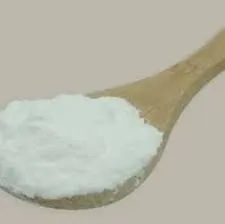Chemical Cooling Tower Water Treatment Ensuring Efficiency and Longevity
In the industrial landscape, cooling towers play a pivotal role in maintaining the efficiency of thermal systems by dissipating excess heat. However, the water used in these towers can become a breeding ground for fouling, corrosion, and scaling, which can significantly degrade performance and increase operational costs. Chemical water treatment is a crucial aspect of cooling tower management, ensuring optimal operation and extending the life of equipment.
The Importance of Water Quality
Cooling towers operate on the principle of heat exchange, where water circulates to absorb heat from industrial processes before being cooled through evaporation. This process can result in concentrations of various contaminants, including minerals, biological organisms, and organic materials. The quality of water used in cooling towers is essential not only for the performance of the system but also for the longevity of components such as heat exchangers, pumps, and piping.
Common Water Problems
1. Scaling As water evaporates, dissolved minerals such as calcium and magnesium can precipitate out, forming scale inside the cooling tower and associated piping. This scale buildup acts as an insulator, reducing heat transfer efficiency and leading to overheating and energy waste.
2. Corrosion Cooling tower systems often experience corrosion due to the presence of oxygen, low pH levels, and chlorides. Corroded components can lead to leaks, increased maintenance costs, and system failures.
3. Fouling Biological growth, including algae and bacteria, can thrive in the warm, stagnant water of cooling towers. Fouling can significantly impede water flow, compromise heat exchange, and increase the risk of Legionella outbreaks.
Chemical Treatment Methods
To combat these water quality issues, various chemical treatments are employed
chemical cooling tower water treatment

1. Scale Inhibitors Chemicals such as phosphonates and polyacrylates are used to prevent scale formation. These inhibitors work by complexing with calcium ions, thus reducing their ability to precipitate and form scale.
2. Corrosion Inhibitors To protect metal components, corrosion inhibitors such as molybdates, nitrites, and phosphates are added to the water. These chemicals form a protective film on metal surfaces, reducing oxidation and prolonging equipment life.
3. Biocides To control biological growth, biocides (such as bromine or chlorine-based products) are used. These chemicals effectively kill harmful microorganisms, minimizing the risks of fouling and potential health hazards.
4. pH Control Agents Maintaining the proper pH level is vital for preventing corrosion and scaling. Chemical agents such as sulfuric acid or sodium hydroxide are often employed to adjust pH levels within the optimal range.
Monitoring and Control
For effective chemical water treatment, continuous monitoring of water quality parameters such as conductivity, pH, and biological activity is essential. Modern cooling towers often incorporate automated monitoring systems that can detect changes in water chemistry and trigger appropriate chemical adjustments.
Additionally, routine water sampling and laboratory analysis help ensure that treatment programs are effective and that potential problems are identified before they escalate. This proactive management approach not only enhances system performance but also aligns with environmental regulations and sustainability initiatives by minimizing chemical usage and waste generation.
Conclusion
Chemical water treatment is a fundamental component of cooling tower operation, addressing critical issues such as scaling, corrosion, and fouling. By implementing effective chemical treatment strategies and maintaining rigorous monitoring practices, industries can optimize their cooling tower performance, reduce maintenance costs, and enhance the overall lifespan of their equipment. Moreover, with increasing environmental awareness and regulatory scrutiny, adopting sustainable water treatment practices is more important than ever for the modern industrial operation. Investing in comprehensive chemical treatment programs is not just a matter of compliance—it is a strategic decision that can lead to significant cost savings and operational efficiencies in the long run.

